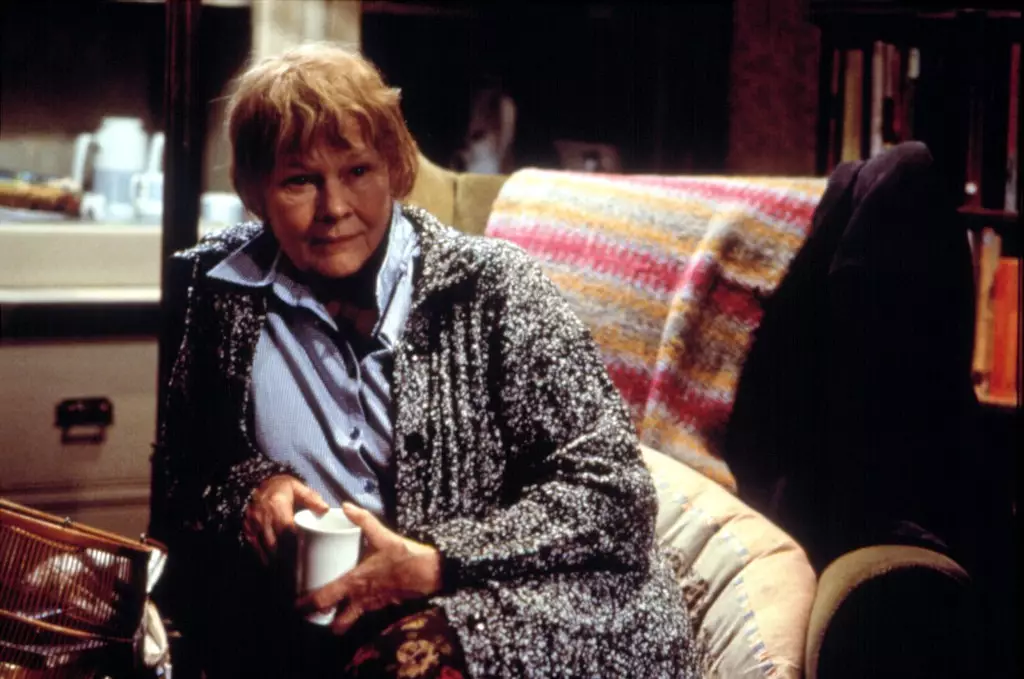The stark reality surrounding dementia, particularly Alzheimer’s disease, is troubling and warrants society’s utmost attention. With nearly one million people in the UK living with dementia and a staggering one in three going undiagnosed, the need for effective intervention is critical. Actress Dame Judi Dench, fueled by her portrayal of Iris Murdoch in the film “Iris,” has become a prominent voice advocating for change within the National Health Service (NHS). Her calls for early and accurate diagnoses resonate with a growing urgency, hinting at the emotional and societal fallout stemming from these delays.
Dementia does not merely rob individuals of their memories; it encroaches upon their very essence. For patients and families alike, the struggle is often exacerbated by the labyrinthine healthcare system, where waiting periods can extend for up to a year. In economically disadvantaged regions, this timeline stretches even further. Dench’s association with Alzheimer’s Research UK’s “Dementia Unseen” campaign brings necessary attention to these haunting statistics. Yet, as we delve deeper, we must question why these inexcusable delays persist in one of the world’s most developed nations.
A Society Failing Its Most Vulnerable
The grave deficiencies in the current system demand immediate reform. When we consider that Alzheimer’s Research UK is pushing for a protocol where people should receive a specialist referral within six weeks—and a comprehensive diagnosis within 18 weeks—we are confronted with the absurdity of the current timeline. The recent decision by the government to abandon a target aimed at diagnosing 66.7% of those over 65 with dementia only compounds this failure. It seems unfathomable that to this day, in a society often lauded for its advancements in healthcare, individuals continue to wait in indefinite limbo.
The fact that the number of dementia cases is expected to rise by 43% by 2040 should be a wake-up call for policymakers. Delaying diagnosis not only strips away the dignity from those afflicted but also fragments families and strains community resources. Hilary Evans-Newton, the Chief Executive of Alzheimer’s Research UK, highlights the emotional toll that these delays inflict on families trying to cope without clarity or direction. The necessity for an official diagnosis extends beyond medical terminology; it paves the way for essential support, access to treatments, and the opportunity for families to synthetically create memories during a time laden with uncertainty.
The Human Cost of Delayed Diagnoses
As Dench poignantly puts it, watching a loved one slowly fade without understanding the “why” is a heartbreak that no family should endure. A diagnosis may not remedy all ailments but offers something critical: certainty. When patients and their families have that information, they can navigate the contentious terrain of dementia with a semblance of control. They may confront fear with hope, ignorance with knowledge.
This perspective presents an ethical imperative: everyone living with dementia deserves to understand their condition promptly. To deny individuals a timely diagnosis dooms them and their families to additional suffering. The ramifications of procrastination go beyond the individuals affected; they cast a shadow over entire communities. When members of society are left unmoored, the ripples of despair spread further, affecting those who care for them and the resources needed to support their care.
A Call for Collective Action
Dame Judi Dench’s impassioned plea serves not only as a catalyst for awareness but also as a rallying cry for action. It compels us to scrutinize the policies in place and to acknowledge our collective responsibility toward those living with dementia. As citizens, we must advocate for a streamlined and humane healthcare system that prioritizes mental health alongside physical health.
Our response should not simply be gratitude for Dench’s willingness to step into this role; instead, we must transform that gratitude into meaningful engagement. Sign petitions, contact your local representatives, and create dialogues within your communities. If public sentiment can sway legislative change, then empowering the voice of the people is crucial in a system that has so clearly lapsed in its duties toward the most vulnerable among us. The complexities surrounding a dementia diagnosis demand immediate attention, and it is up to us to ensure that we are not merely passive bystanders in this struggle.


Leave a Reply